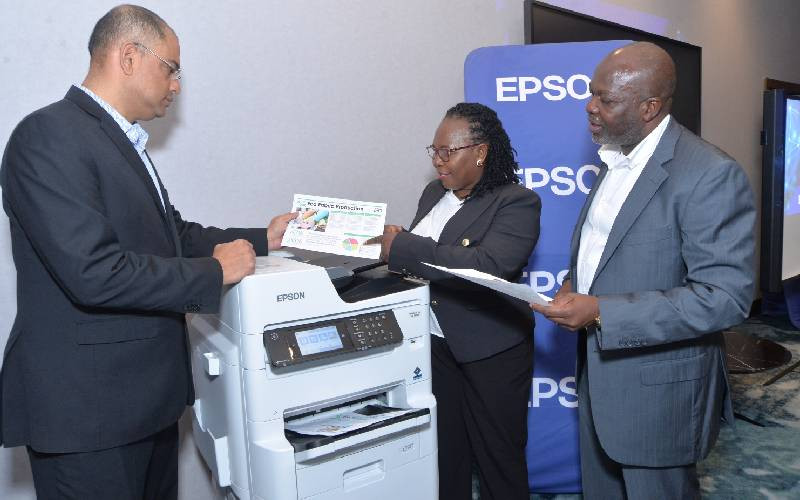
From Left: Epson Regional Head for East and West Africa, Mukesh Bector, Astra Dental Clinic CEO Lucy Mutara and Aster Limited Sales Director, Peter Omondi interact with the Epson WorkForce Pro WF-C879RD3TWFC Color A3 Multifunction Printer during the launch of Epson's Health Research Study. [Kennedy Mureithi, Standard]
In Kenya, where healthcare facilities are stretched thin by staffing shortages and long waiting lists, a new report has spotlighted a surprising culprit behind further delays- inefficient printing technology. The study by global technology company Epson, which was unveiled in Nairobi on September 4, reveals that outdated printers are contributing to significant productivity losses in hospitals and clinics.